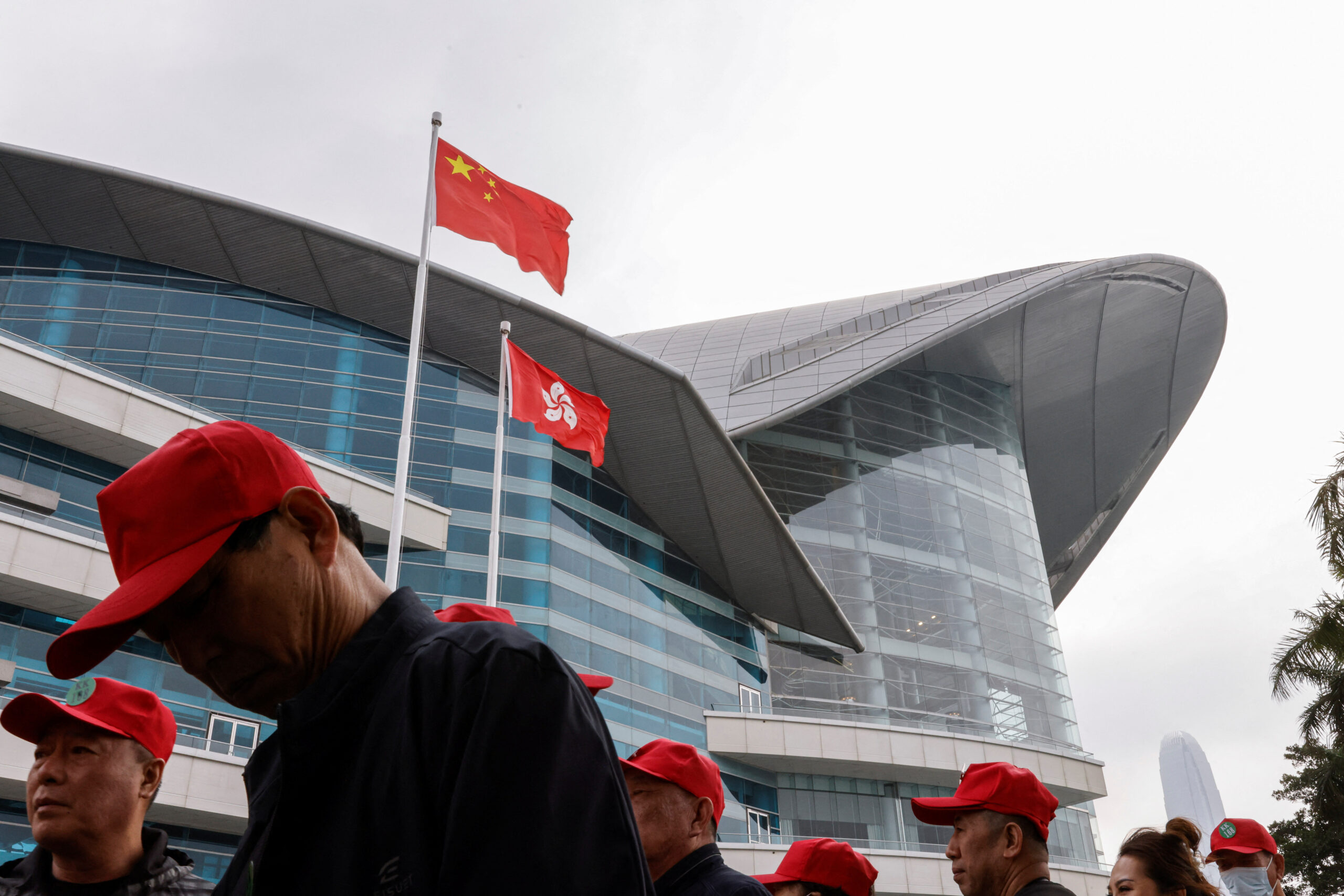
Chinese tourists walk in front of the Chinese and Hong Kong flags, outside the Convention and Exhibition Centre, in Hong Kong, China March 13, 2024. REUTERS FILE PHOTO
Hong Kong’s new national security law “fails to safeguard” human rights and basic freedoms, Canada said on Wednesday, joining the European Union, the United States, the United Kingdom and the United Nations in the legislation’s criticism.
Why it is important
Hong Kong lawmakers unanimously passed the new bill on Tuesday, fast-tracking a major piece of legislation that critics say further threatens the city’s freedoms. The package, known as Article 23, broadens the definition of crimes including sabotage, sedition and state secrets, and stipulates tougher penalties of up to life imprisonment.
READ: Hong Kong legislature passes tough new national security law
Key quotes
“Canada is concerned that the new national security law adopted by Hong Kong could deviate further from internationally accepted standards of proportionality, transparency and accountability,” the Canadian government said in a statement.
It said the law defined national security threats and offenses very broadly, leading to concerns of “enforcement overreach.”
“This new legislation, however, fails to safeguard the human rights and freedoms enshrined in the Basic Law and in international instruments to which Hong Kong is a party.”
READ: Hong Kong issues new national security law bill with tougher jail terms
Context
The new legislation comes on top of a China-imposed national security law in 2020 that has been used to jail pro-democracy activists after violent street protests a year earlier and triggered sanctions from the United States.
Critics say the new law will further narrow freedoms, and could be used to “eliminate dissent through the fear of arrest and detention”.
China has dismissed concerns over the new law as “groundless” and said the legislation will “secure Hong Kong’s prosperity and stability” as well as safeguard the interests of overseas investors, democracy and freedom.
Hong Kong returned from British to Chinese rule in 1997 with the guarantee its freedoms, including freedom of speech, would be protected under a “one country, two systems” formula. Critics of the 2020 law say those freedoms have eroded swiftly.

